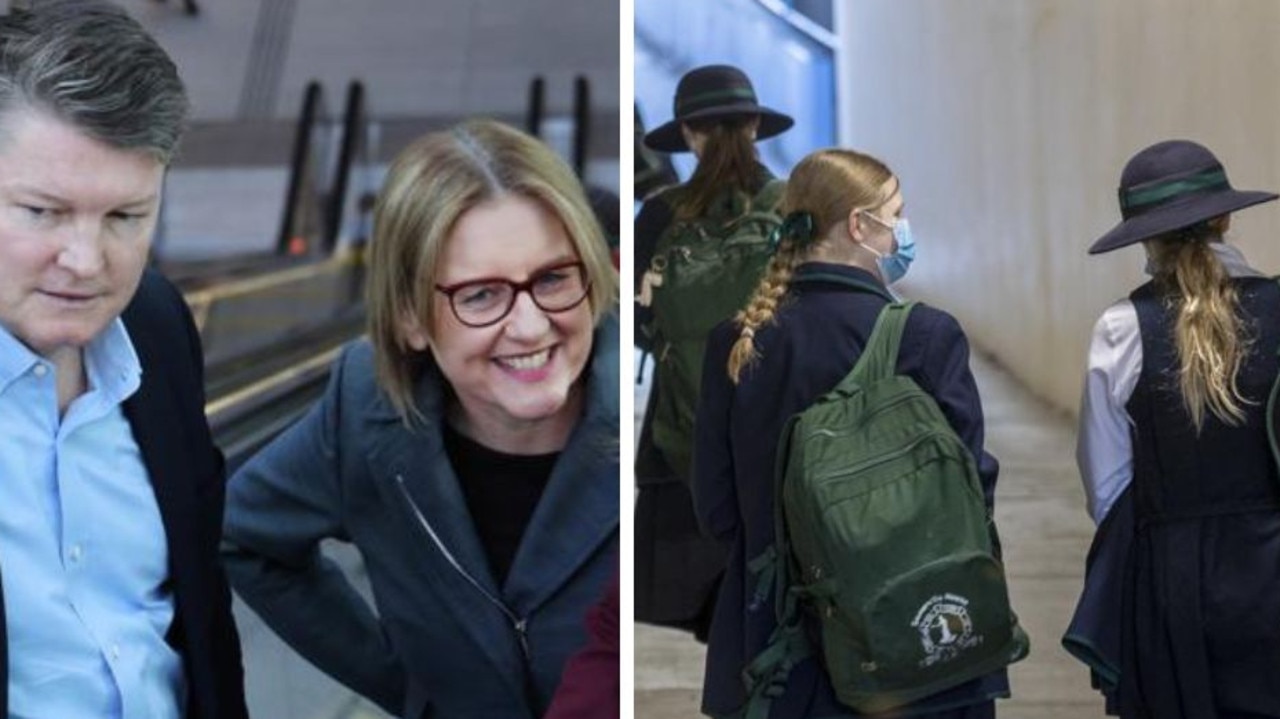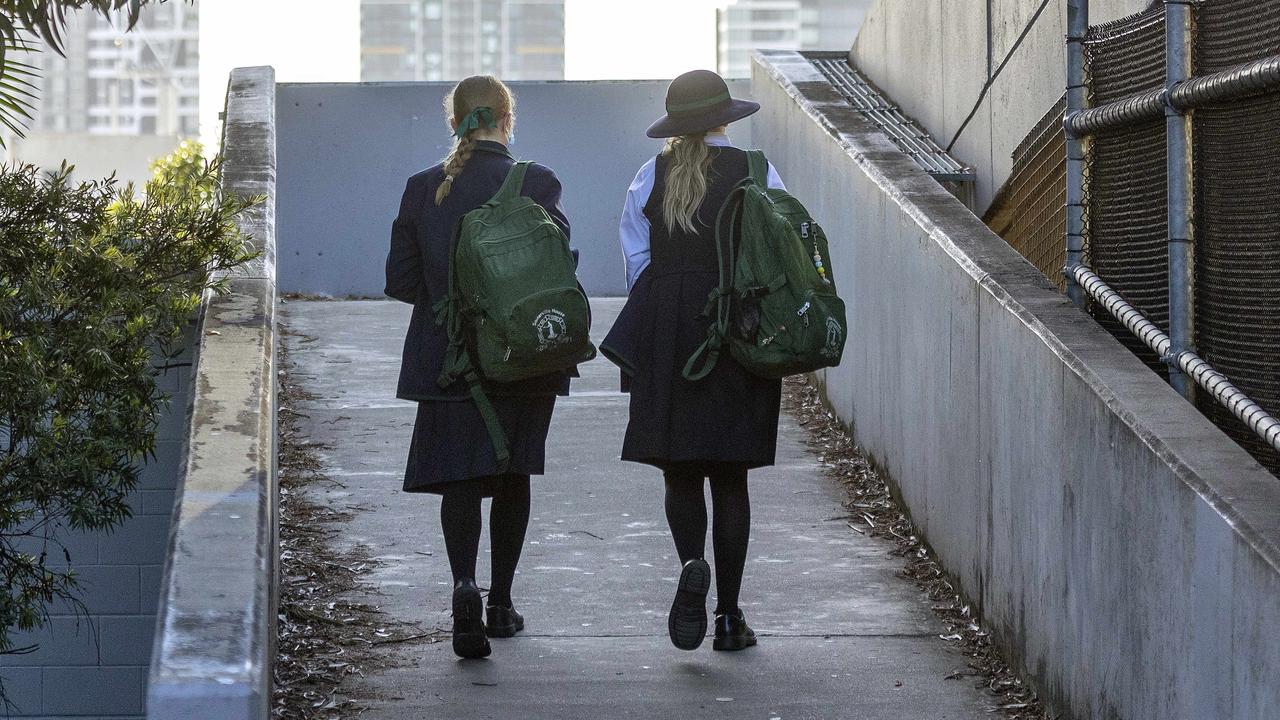Why Australian parents and experts are pushing to raise the age for social media access to 16
Australian children are facing an unprecedented health crisis. Now, experts and parents are calling for change. Sign our petition.
Teens
Don't miss out on the headlines from Teens. Followed categories will be added to My News.
Australian teenagers are in the midst of the greatest crisis of a generation because of toxic social media that is affecting their health and costing lives.
Parents are losing the fight against multi-billion tech platforms who continue to knowingly expose children to harmful content that is affecting their mental and physical health.
Psychologists say there is a youth mental health crisis being caused by excessive social media use that is leading to loneliness, sleep deprivation and reduced social skills.
Suicide and self harm has skyrocketed in children under 19 and eating disorders are up 200 per cent over the last 12 years.
Experts argue that in that time there has been one fundamental change in children’s lives - the utter explosion of social media use.
So today, along with parents from across Australia, we are calling on the federal government to raise the age limit at which children can access social media to 16 as part of a national campaign, Let Them Be Kids, to stop the scourge of social media.
Let Them Be Kids: SIGN THE PETITION
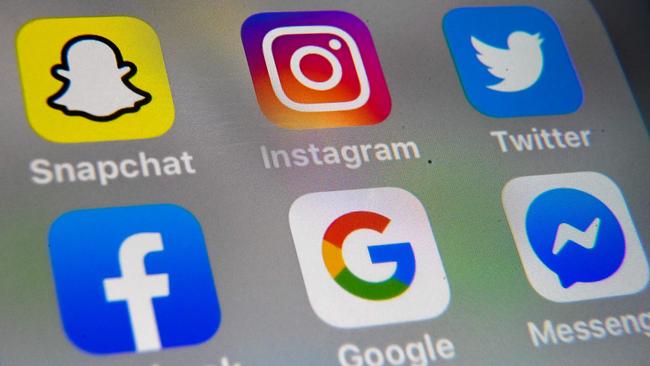
Child advocates, health professionals and Australia’s leading psychiatrist are in full support of the campaign which if successful will give children three year, or 36 months of their childhoods back free from the destructive and addictive hold the platforms have over them.
Social media has been directly blamed for the deaths of a number of Aussie kids who have taken their lives after being cyberbullied, groomed and abused by online predators or been victims of sextortion, where they have been tricked by hoaxers into sharing sexual images of themselves and blackmailed.
Others have died in accidents after following dangerous social media challenges, or encouraged to self-harm or starve themselves in sick hashtag trends.
New polling conducted last month by Dynata surveyed over 3000 social media users, including teenagers as part of the Let Them Be Kids campaign.
The polling reveals:
- 70 per cent of teens have had a negative experience on social media
- One in three teeagers have been exposed to distrubing or traumatic content
- 45 per cent have been abused or harrassed
- One in four have cyberbullied or sexually harrassed
- 59 per cent have been scammed
- One in 10 have been the victim of revenge porn.
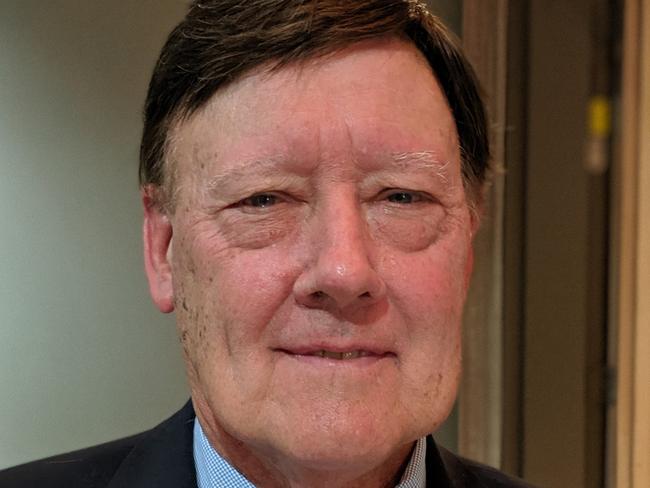
Professor Philip Morris AM from the National Association of Practising Psychiatrists is backing the campaign and said: “Many children don’t have impulse control, they often don’t understand privacy and risk, they may not be competent to make relevant decisions, and they can be exposed to completely inappropriate and damaging material on social media.
“The other issue is one of concentration – social media works with a very short attention span, and children are not learning to concentrate, focus, imagine, dream, because the apps are so addictive.”
Professor Selena Bartlett, a neuroscientist and author of Being Seen, a guide for parents on managing online dangers, warns this generation is facing a “massive crisis”.
“I can’t stress enough, as a neuroscientist that has studied the brain for 30 years, this is going to impact a generation of children,” Professor Bartlett said.
“We are facing a massive crisis. Everyone thinks it will be someone else’s child. But we are seeing suicides and self harm every day.
“We have lost a generation already. We need to stop another generation of children from the impacts of being on social media and on their smartphones. We need to protect our kids’ innocence and their childhood.”
She said in the future letting your child go on their phone will be seen as the equivalent of child abuse.
“In 2024, social media, smart devices and games are the most dangerous place for children and they’re most at risk when they’resitting in their bedroom or in the bathroom at home.
“We need to do something with urgent action. I have written a book on this to activate the parent network to raise awarenessmost parents think this will not happen to their children.
“Parents are losing the fight, we have to do something urgently. We have to protect out kids”.
Ali Halkic, 50, who lost his only child Allem, 17, to suicide after he was bullied on social media 13 years ago, said children are still dying because of the tech platforms.
“If I knew what I know today, there’s no chance my son would have been exposed to social media,” Mr Halkic said. “I provided the phone and paid for the internet and I thought because he was at home he was safe. He was not. This campaign has to succeed. We need laws to protect our children.”
Our push to protect children from the tech giants who have consistently failed to adequately deal with well publicised harms, comes as other countries are also taking action.
An expert panel in France has recommended smartphones be banned for under 13s and popular social media apps - like Instagram, Facebook, Snapchat and TikTok - outlawed until the age of 18.
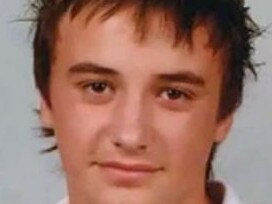
In the US 50,000 parents have signed up to a new movement gathering momentum - Wait until 8th - vowing to keep their kids off smartphones until 14.
The South Australian government last week appointed former High Court Chief Justice Robert French to examine legal avenues on how to impose a social media ban on children under the age of 14, with those aged 14 and 15 requiring parental consent to access a social media account.
Education Minister Jason Clare this month declared social media “toxic” and “like poker machines for kids” saying it was affecting their learning in classrooms and suggesting it could be linked to the drop in students finishing high school.
Figures also show obesity is rising, with a quarter of Aussie children falling into that category. And, social media and gaming is not helping, with kids so sedentary they are developing issues around bone density, even suffering bone fractures when playing school sport.
Another Australian survey found three quarters of teens under 18 believe social media is completely or somewhat responsible for a decline in mental health.
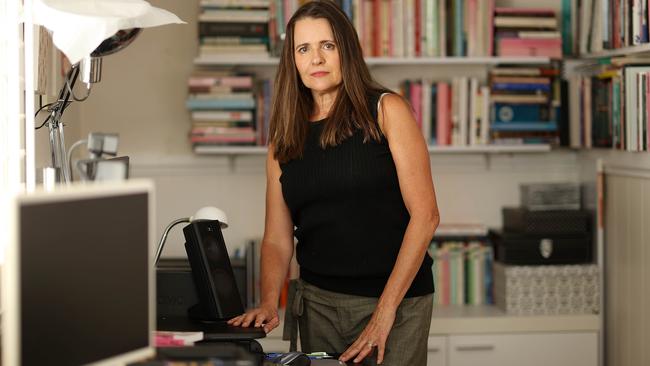
Melinda Tankard-Reist from Collective Shout, working to stop the sexualisation and exploitation of girls and women, said children are being fed unrealistic beauty ideals, porn and graphic violence.
She said X - formerly known as Twitter - is the go to platform for young boys looking for porn.
“Children are seeing torture, beheadings, extremely degrading depictions of women and a level of violence that children are not meant to see. They are being desensitised,” Ms Tankard-Reist said.
“When it comes to boys they’re being radicalised online, fed misogyny, from the likes of Andrew Tate, and they’re sharing dangerous content with each other. They’re learning callous, brutal ideas about masculinity.”
In another survey, half of young people said they didn’t like their bodies, with researchers finding a relationship between body dissatisfaction and social media use, with mental health professionals alarmed at the increase in girls self-harming.
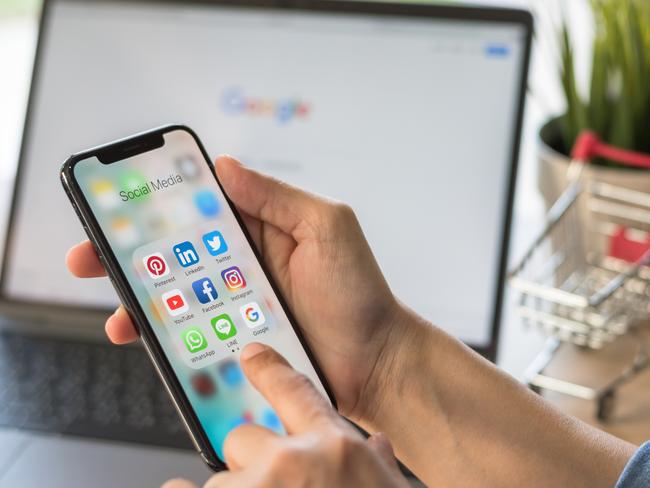
“We know that from just 10 to 15 minutes of scrolling through Instagram it increases body dissatisfaction among girls,” Ms Tankard-Reist said.
“They see these idealised beauty standards they can’t meet; it’s by design because influencers make money from the angst of young girls. If they felt good about themselves they would not feel compelled to buy all the crap to make them feel better.”
Meanwhile, more than half of young Australians said they have experienced cyberbullying, while the eSafety Commission said one in eight complaints about child sex abuse material involved the perpetrator directing the child to perform explicit acts via a webcam or smartphone, with a quarter of the self-generated material taken in the home under the noses of unsuspecting parents.
Jen Hoey, founder of Not My Kid, a support group for parents looking to protect their children against online dangers, knows firsthand how vulnerable kids are to online predators.
“I absolutely support this campaign,” Ms Hoey said.
“My daughter was groomed via an online game at someone else’s house when she was nine and it took a very serious toll on her mental health before she was able to disclose what had happened two years later.
“I am very much in favour of delaying access to social media and if there are some restrictions in place then that makes it easier on parents.
“I called my group Not My Kid because no one thinks it will happen to them.”
Neil Milton, manager of ChildSafe Australia and a father of three also supports the campaign “100 per cent”.
“The reality is the brain is not developed yet, so decision making is flawed,” Mr Milton said. “If (Mark) Zuckerberg switched off his apps a lot of heartbreak and suicide would stop immediately.”
Dany and Cynthia Elachi, have five kids and gave their eldest daughter one of their old phones when she was 10 and she became obsessed.
“It quickly overtook all her spare time, and possibly more than just her spare time,” Mr Elachi said. “She was messaging in bed, making calls til midnight and this was when she was still in primary school.
“It was not her fault, the apps were addictive and it was keeping her away from sleeping, eating and time with the family.”
When the phone broke they decided not to replace it.
Instead they sought out other parents in her class and built an alliance vowing to delay giving their kids a phone or access to social media.
From that The Heads Up Alliance was born.
Mr Elachi’s daughter is now 15.
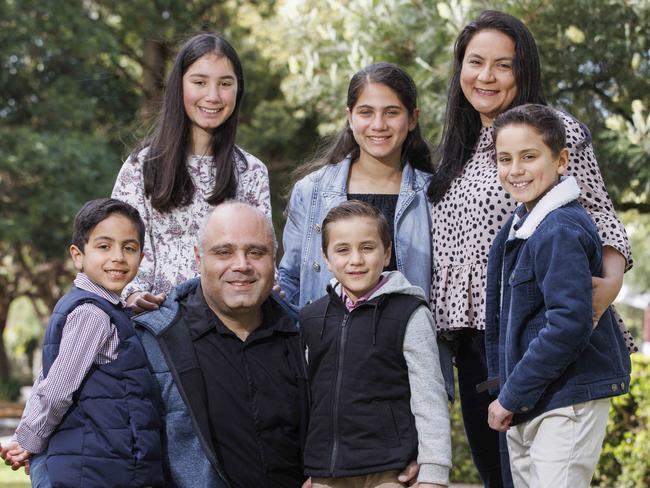
“She doesn’t have a phone,” Mr Elachi said. “She’s still got friends and has an active social life. Her world has not fallen apart.
“Now there are thousands of parents across the country doing the same thing.
“We couldn’t wait for the Government to bring in legislation.”
He said raising the age restriction to 16 was something the group has been “championing”.
“We have been waiting for someone to take this up and we are very grateful that News Corp is doing this,” Mr Elachi said.
Queensland Premier Steven Miles said regulating the social media use of his own children had been a challenge as he called for parents to get “greater support”.
“I think all parents could use some greater support to police the use of social media for their children,” he said.
“It’s very hard for parents to be setting these rules when their kids friends might have different rules, when their class might require certain usage of devices and apps.”
Queensland Health Minister Shannon Fentiman said there had been an increase in young people coming to hospital seeking mental health care.
She said the state government had boosted funding for acute mental health care services and eating disorder recovery.
Professor Bartlett said her book is about activating the parent network and getting them to understand the dangers.
“Parents are losing the fight, we have to do something urgently,” she said. “We have to protect our kids”.
On its website Meta said it is committed to making sure teens have age-appropriate experiences that are “safe, supportive and consistent”, while a TikTok spokesperson said it has a “zero-tolerance policy for bullying, physical abuse, sexual exploitation, and endangerment of minors”.
The TikTok spokesperson said accounts for those aged under 16 are set to private by default, which limits who can follow and view their content, read their bio, and interact with their videos.
It also has a family pairing feature that allows adults to link their TikTok account with their teen’s account, and gives them control over their teen’s account settings.
A Snapchat spokeswoman its app was intentionally designed to be different from traditional social media, with a focus on helping people communicate with their close friends. “Snapchatters can easily and confidentially report any abusive accounts, content or chats, and we take quick action to remove them. While content on Snapchat deletes after 24 hours by default, we preserve data when a concern is reported to us.” It also provides family tools to help parents monitor their child’s account.
X did not respond to our request for comment.
If this story has raised problems for you please contact:
Lifeline: 13 11 14
Suicide Call Back Service: 1300 659 467
Beyond Blue: 1300 224 636
MensLine Australia: 1300 789 978
Kids Helpline: 1800 551 800
13YARN: 13 92 7




